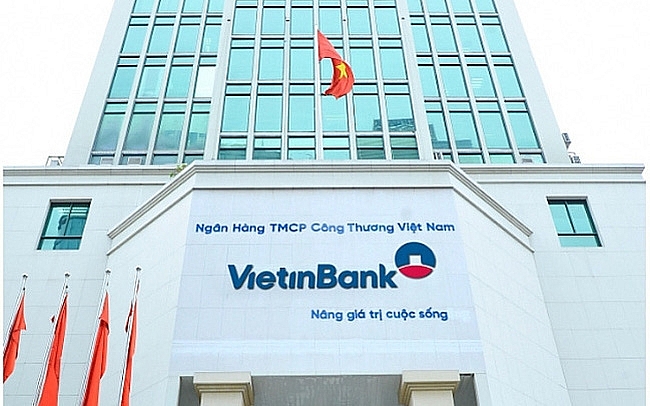Extensive cash injections heading towards finance
 |
| Extensive cash injections heading towards finance - illustration photo |
Last week, state-owned lender VietinBank announced it would transfer 49 per cent of its VietinBank Leasing arm charter capital to Mitsubishi UFJ Lease & Finance, a Japanese group engaged in consumer finance and asset finance businesses, such as provision of monetary loan services.
Accordingly, the domestic firm will be switched from a single-member limited liability company to a two-member (or multi-member) one.
“Historically, foreign investors have played an important role in developing and strengthening Vietnam’s banking and insurance sectors,” said Warrick Cleine, chairman and CEO of KPMG in Vietnam and Cambodia, who advised the Japanese investor on the acquisition. “They have operated directly in the market through branches and subsidiaries, often introducing new products and service standards to Vietnamese consumers. They have also invested directly in Vietnamese-owned and operated entities, bringing technology and human capital.”
Likewise, other finance companies are also shaking hands with deep-pocketed partners to strengthen their operations. One source told VIR that MCredit – a consumer finance subsidiary of Military Bank – will sign an agreement with Vietnam Post Office to distribute unsecured loan products via the latter’s vast network.
This co-operation is slated to boost MCredit’s presence, even to remote areas, while saving on costs of opening their own transaction offices. Previously, Shinsei Bank from Japan had acquired 49 per cent of MCredit.
Notably, South Korean and Japanese firms are gearing up to enter Vietnam’s financial market, illustrated by the cases of Shinhan Card, Lotte Card, Sumitomo Mitsui Trust Bank purchasing local finance companies in recent years.
AEON, Japan’s leading retailer, also signalled its ambition of jumping onto Vietnam’s finance bandwagon.
Meanwhile, South Korean JB Financial has paid around $16.1 million to acquire Vietnam-based brokerage Morgan Stanley Gateway Securities, which was established in 2006 with backing from investment giant Morgan Stanley.
The group also plans to provide Vietnamese companies with services like arranging corporate bond issuance or mergers and acquisitions (M&A) advisory services.
Privately-held lender SHB is mulling over selling parts of its capital at SHB Finance to a strategic foreign partner. Although the deal value was not disclosed, the parent company is likely to retain the bulk of the capital in the subsidiary.
Do Quang Hien, chairman of SHB’s Board of Directors, expressed his optimism, saying, “We are in the middle of negotiations, and a successful tie-up deal in 2020 is likely on the cards.”
In the same boat, FE Credit is also allegedly seeking strategic shareholders to beef up its capital. Ngo Chi Dung, board chairman at VPBank – the parent company of FE Credit – said the negotiation process has yielded some fruit, despite being postponed due to the pandemic. Although the stake sale will reduce VPBank’s net interest margin, management plans to use the capital from the FE Credit sale to boost the bank’s capital base, enhance scale, and expand lending to retail and small- and medium-sized enterprises.
Under a contract signed last October, South Korean credit card company Hyundai Card also showed interest in acquiring a 50 per cent stake in Vietnamese consumer finance institution Finance Company Limited for Community (FCCOM) for around $42 million.
The deal is poised to be completed within 2020, and FCCOM will operate as a joint venture of Hyundai Card and the bank. “Hyundai Card is paying attention to the fast pace of growth in the Vietnamese financial market and sales of automobiles from Hyundai and Kia,” Hyundai Card said in a statement.
In another case, HD Bank revealed plans to convert HD Saison from a 50-per-cent-owned consumer finance joint venture to a joint-stock company. Experts believed relations with foreign shareholders that can transfer know-how or help lower costs will be an advantage, though any imported expertise will still need to be calibrated to local conditions.
“Now we are seeing interest in the non-bank financial sector. Foreign investors have backed Vietnamese fintech providers, securities companies, and non-bank lenders such as leasing and consumer finance companies. These investments allow companies to grow domestically, and explore expansion abroad,” Cleine of KPMG told VIR.
What the stars mean:
★ Poor ★ ★ Promising ★★★ Good ★★★★ Very good ★★★★★ Exceptional
Related Contents
Latest News
More News
- Foreign leaders extend congratulations to Party General Secretary To Lam (January 25, 2026 | 10:01)
- 14th National Party Congress wraps up with success (January 25, 2026 | 09:49)
- Congratulations from VFF Central Committee's int’l partners to 14th National Party Congress (January 25, 2026 | 09:46)
- 14th Party Central Committee unanimously elects To Lam as General Secretary (January 23, 2026 | 16:22)
- Worldwide congratulations underscore confidence in Vietnam’s 14th Party Congress (January 23, 2026 | 09:02)
- Political parties, organisations, int’l friends send congratulations to 14th National Party Congress (January 22, 2026 | 09:33)
- Press release on second working day of 14th National Party Congress (January 22, 2026 | 09:19)
- 14th National Party Congress: Japanese media highlight Vietnam’s growth targets (January 21, 2026 | 09:46)
- 14th National Party Congress: Driving force for Vietnam to continue renewal, innovation, breakthroughs (January 21, 2026 | 09:42)
- Vietnam remains spiritual support for progressive forces: Colombian party leader (January 21, 2026 | 08:00)

 Tag:
Tag:



















 Mobile Version
Mobile Version